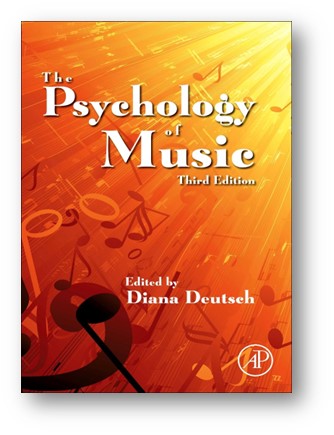“Music gives a soul to the universe, wings to the mind, flight to the imagination, and life to everything.” − Plato – An Ancient Greek Philosopher
Music psychology is not a contemporary and modern idea. Ancient philosophers such as Plato, Aristotle, and Pythagoras believed in the potent powers of music. Later philosophers discussed the correlation between music and emotions in their books too. For example, in The World as Will and Representation, Arthur Schopenhauer quoted that “music is a personification of pure will.”
But what exactly is music, and how does it affect people? Music is an eternal power with no image, symbol, or literal existence. It’s the sensation and soothing sound that aligns with human emotions. Music can depict human emotion with utmost honesty without sugarcoating. It’s the poetry that encapsulates feelings. In a nutshell, music articulates emotions and human psychology.
The psychology of music is yet another integral part of the musical realm. The psychology of music depicts the different emotions and factors attached to music. Numerous scholars and professors are trying to wrap their heads around this twisted yet comprehensible notion of psychology deeply rooted in music. Diana Deutsch is a legendary scholar and researcher known for her innovative theory about illusions of sound and music perception.

Deutsch, a psychology professor at the University of California, pioneered musical illusions and paradoxes. Her groundbreaking research has uncovered many fascinating phenomena, from the phantom words’ illusion to the mind-bending tritone paradox. But Deutsch’s work doesn’t stop there; she also delves into the intricacies of memory for music and the complex relationship between the sounds of speech and music. Her investigations into absolute pitch, a rare and mysterious ability, are overwhelming.
Deutsch’s research has revealed two intriguing illusions demonstrating the role of unconscious inference, which encompasses the memories, beliefs, and expectations in how a human being perceives music and speech. The first is the mysterious melody illusion, which occurs when a familiar melody is played with its notes correctly named but randomly placed in different octaves. Listeners cannot identify the melody unless they already possess knowledge of it. Secondly, there is the phantom words illusion, where Deutsch played repeating two-syllable words and phrases through stereo loudspeakers. The syllables alternated between the speakers, one coming from the right and the other from the left. Listeners reported ‘hearing’ words and phrases that were not actually presented; these ‘phantom words’ were often linked to their personal memories and expectations.

Deutsch is a highly respected author with many publications. Her notable works include The Psychology of Music, with three editions published in 1982, 1999, and 2013, as well as the CDs “Musical Illusions and Paradoxes” (1995), “Phantom Words and Other Curiosities” (2003) and Musical Illusions and Phantom Words: How Music and Speech Unlock Mysteries of the Brain, published in 2019. Deutsch has been recognized for her exceptional contributions to various organizations, including the American Association for the Advancement of Science, the Acoustical Society of America, the Audio Engineering Society, the Society of Experimental Psychologists, the American Psychological Society, and the American Psychological Association, having been elected a Fellow of each.
Deutsch has been granted numerous prestigious awards, such as the Rudolf Arnheim Award for Outstanding Achievement in Psychology and the Arts from the American Psychological Association, the Gustav Theodor Fechner Award for Outstanding Contributions to Empirical Aesthetics from the International Association of Empirical Aesthetics, the Science Writing Award for Professionals in Acoustics from the Acoustical Society of America, and the Gold Medal Award from the Audio Engineering Society for her lifelong dedication to advancing the understanding of the human hearing mechanism and the science of psychoacoustics.
Deutsch was born in London, England, on 15 February 1938. Her father, Mr. Max Sokol, was a sculptor of the expressionist school. Deutsch drew her artistic inspiration from her father, who was deeply interested in art, science, and philosophy. She acquired her primary education from Christ’s Hospital and later enrolled in St Anne’s College, Oxford, and earned her First-Class Honors degree in Psychology, Philosophy, and Physiology in 1959. Influenced by Stuart Sutherland, J.L. Austin, and Richard Gregory, she was profoundly engrossed in psychology and art.
As a brilliant scholar and researcher, Diana Deutsch introduced several unique ideas, theories, and books unknown to the world. She is one of the world’s leading experts on the psychology of music and shows how illusions of music and speech, many of which she discovered, have fundamentally altered thinking about the brain. Deutsch’s contributions to psychology are genuinely inspiring, and her legacy will undoubtedly continue to shape our understanding of the human mind for years to come.
“We don’t really know why the brain hears speech as speech and music as music. This demonstration opens the door to uncovering new connections between speech and music.” – Diana Deutsch


… [Trackback]
[…] Find More on that Topic: calipost.com/diana-deutsch-connecting-the-chords-of-music-and-speech-with-her-illusions/ […]